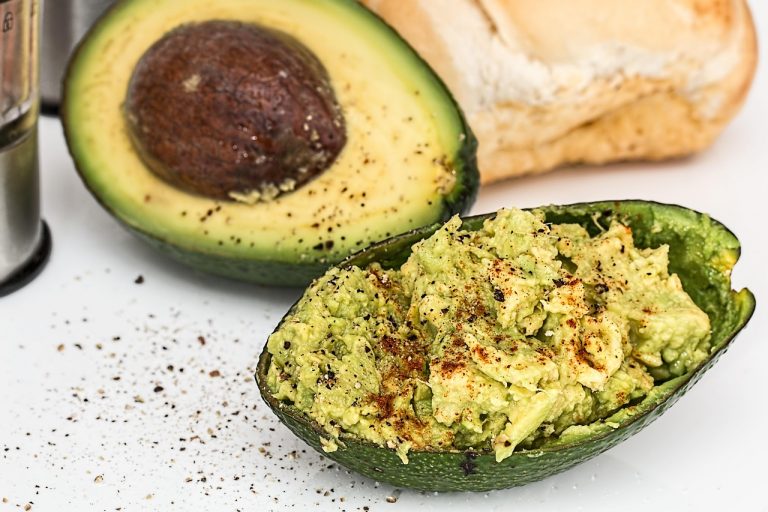Moringa boosts your digestive health naturally, and let me tell you, it’s a game changer. If you’ve ever struggled with bloating, gas, or irregularity, you’re not alone. Many people face digestive issues that can throw a wrench in their daily lives. But what if I told you that a single plant could help? Moringa, often called the “Miracle Tree,” is packed with nutrients that can transform your gut health. Let’s dive into seven powerful ways this superfood can support your digestive system.
Contents
Understanding Moringa and Its Nutritional Profile
Moringa, scientifically known as Moringa oleifera, is a nutrient-dense plant native to parts of Africa and Asia. It’s rich in vitamins, minerals, and antioxidants, making it an exceptional addition to your diet. Why does this matter? Because a healthy gut is the backbone of overall wellness. When your digestive system functions well, you feel lighter, more energetic, and ready to tackle whatever life throws your way.
The leaves, pods, and seeds of the moringa tree are edible, but it’s the leaves that pack the biggest punch nutritionally. They contain:
- Vitamins A, C, and E: Essential for immune function and skin health.
- Calcium and Iron: Important for bone health and energy production.
- Antioxidants: Help fight oxidative stress in your body.
By incorporating moringa into your diet, you’re not just nourishing your body; you’re setting the stage for better digestive health.
1. A Natural Source of Fiber
One of the simplest yet most effective ways moringa boosts your digestive health is through its fiber content. Fiber plays a crucial role in maintaining gut health. It helps regulate bowel movements and keeps things moving smoothly through your intestines.
How Fiber Works Wonders
- Promotes Regularity: Adequate fiber intake can help prevent constipation and promote regular bowel movements.
- Supports Healthy Gut Bacteria: Fiber acts as a prebiotic, feeding the good bacteria in your gut. This balance is vital for a healthy digestive system.
Incorporating moringa into your smoothies or salads can easily boost your fiber intake. It’s a delicious way to take care of your gut!
2. Anti-Inflammatory Properties
Chronic inflammation can lead to a myriad of digestive issues, including irritable bowel syndrome (IBS) and other gastrointestinal disorders. Moringa is rich in anti-inflammatory compounds, like quercetin, which can help reduce inflammation in your digestive tract.
How This Benefits You
- Reduces Symptoms of IBS: By calming inflammation, moringa may help alleviate symptoms like cramping and bloating.
- Supports Overall Digestive Health: A less inflamed gut means a more efficient digestive system.
Adding moringa powder to your meals can be an easy way to keep inflammation at bay. Think of it as a protective shield for your gut.
3. Rich in Antioxidants
Your digestive system faces constant challenges from environmental toxins and stress. Moringa is loaded with antioxidants that can help combat oxidative stress, making it easier for your gut to function optimally.
Why Antioxidants Matter
- Neutralize Free Radicals: By fighting free radicals, antioxidants help protect your gut lining from damage.
- Promote Healing: A healthy gut lining is crucial for nutrient absorption and overall health.
By incorporating moringa into your diet, you’re giving your body a fighting chance against oxidative damage.
4. Supports Healthy Gut Microbiota
A balanced gut microbiome is essential for optimal digestion. Moringa has been shown to encourage the growth of beneficial gut bacteria while inhibiting harmful strains. This balance can lead to improved digestion and overall health.
The Power of a Healthy Microbiome
- Enhanced Nutrient Absorption: A thriving microbiome helps your body absorb nutrients more effectively.
- Reduced Digestive Disorders: A balanced gut can reduce the risk of conditions like bloating and constipation.
Consider adding moringa to your meals or beverages as a way to nurture your gut microbiota.
5. Alleviates Bloating and Gas
Bloating and gas can be uncomfortable and embarrassing. Moringa can help alleviate these issues thanks to its digestive enzymes and fiber content. These elements work together to break down food more efficiently.
Say Goodbye to Discomfort
- Improved Digestion: Moringa helps your body digest food more effectively, leading to less gas and bloating.
- Natural Relief: Instead of reaching for over-the-counter remedies, turn to this natural option for relief.
A sprinkle of moringa powder in your meals can help keep bloating at bay. It’s a simple, natural solution to a common problem.
6. Supports Liver Health
Your liver plays a key role in digestion, filtering toxins and breaking down nutrients. Moringa has been shown to support liver health, enhancing its ability to process food and eliminate waste.
Why Liver Health Matters
- Detoxification: A healthy liver can help detoxify your body, improving overall digestive health.
- Nutrient Processing: The liver is essential for metabolizing nutrients from food. Supporting it means better nutrient absorption.
Adding moringa to your daily routine can be a proactive step toward supporting your liver.
7. Promotes a Balanced pH Level
Having a balanced pH level in your digestive tract is crucial for optimal digestion. Moringa helps maintain this balance, which can improve your body’s ability to digest food efficiently.
Benefits of pH Balance
- Better Nutrient Breakdown: A balanced pH helps enzymes work more effectively, breaking down food into absorbable nutrients.
- Reduced Digestive Discomfort: An optimal pH can help reduce acidity and discomfort in the stomach.
Incorporating moringa into your diet can support this delicate balance, making your digestive process smoother and more efficient.
Bottom Line
Moringa boosts your digestive health naturally in so many transformative ways. From promoting regularity and reducing inflammation to supporting your liver and gut microbiota, this superfood is a powerhouse for your digestive system.
Ready to take the plunge? Start by adding moringa powder to your smoothies, soups, or salads. Your gut will thank you!
FAQs
What is the best way to consume moringa?
Moringa can be consumed as a powder, in capsules, or as fresh leaves. Adding powder to smoothies or soups is a popular method.
How much moringa should I take daily?
A common recommendation is 1 to 2 teaspoons of moringa powder per day, but you should consult with a healthcare provider for personalized advice.
Are there any side effects from taking moringa?
Generally, moringa is safe for most people. However, it’s best to consult with a healthcare professional, especially if you’re pregnant or on medication.
By embracing moringa, you’re not just improving your digestive health; you’re embracing a holistic approach to wellness. Here’s to your health and your vibrant, thriving gut!
Get Your FREE Natural Health Guide!
Subscribe now and receive our exclusive ebook packed with natural health tips, practical wellness advice, and easy lifestyle changes, delivered straight to your inbox.




